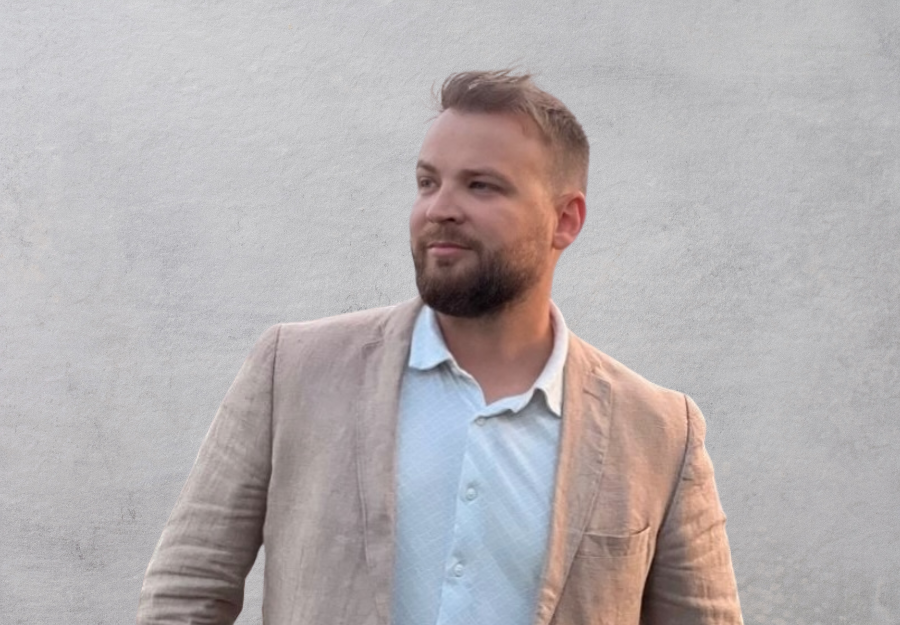From Corvinus to the UN Office in Rome and Gaza

“If you feel your heart beating faster at the thought of an opportunity life throws at you—even if it scares you a bit—then that’s exactly why you should go for it,” says Gergő Darnay-Fitt, international expert at FAO, explaining why he said yes when, in 2023, he was offered a post in the organization’s Gaza office.
By then, Gergő had already spent several years working as an advisor at FAO’s Rome office and had been quietly waiting for an opportunity to be deployed to the field. So when this first—and admittedly risky—assignment came up, he didn’t hesitate. He ended up leading the Gaza office for nearly six months starting in spring 2023, during a particularly sensitive period just before the escalation of conflict in early October. Alongside his team, he worked on various humanitarian and development projects, held daily coordination meetings with other organizations and local authorities, and supported improvements in local food systems and agriculture.
Life in Gaza came with strict security protocols—Gergő could only travel between his residence and workplace, always accompanied by a driver and in an armored vehicle.
“If you can mentally accept that this is a more restricted period in your life, then I think you can adapt. We’re talking about a closed-off, blockaded area where just entering is a challenge. There’s no tourism, and aside from locals, only a few international aid workers are present. Moving around freely is not advisable. After work, I usually returned to my accommodation, cooked, did laundry, rested. Every six weeks, I was relocated to another base outside the zone for a week due to security protocols.”
Gergő returned from Gaza in late September 2023 and has since resumed his work at FAO’s Rome office.
How does one become a diplomat?
Gergő was among the first graduates of Corvinus University’s English-language International Relations MA program, specializing in diplomacy. He believes the training and network he gained at the university, along with his internship experiences, laid the groundwork for his international career.
“They taught us how to think in systems and structures. We were practically trained as international analysts, which—beyond networking—is one of the most important skills in international public service,” he recalls of his Corvinus years.
During his studies, Gergő gained experience at various embassies and gradually progressed along his international career path. He landed his first job through Corvinus’ Career Office: “I owe a lot to the university, which is why I try to support current students as an alumnus.”
“The fact that I could work as a senior UN diplomat in a conflict zone wasn’t just about the specific role—it was about a mindset: how to connect, understand, represent, and ultimately create meaningful change.”
“International public service covers many areas—humanitarian work, development projects, multilateral organizations, background and fieldwork alike. The key is continuous learning and adaptability.”
Whenever he’s in Budapest, Gergő regularly attends alumni events and mentor programs. Together with former classmates, he co-founded the Budapest Diplomatic Forum, which organizes networking events and connects current Corvinus students interested in diplomacy.
“I often tell students who ask for advice to treat their university years as a time for building their CV—get involved in student organizations, join mentoring programs, take internships that align with your career goals. Collect experiences that are valuable in themselves but also enrich your CV. Then, don’t be afraid to dive into work, with all its opportunities to make mistakes, and don’t be discouraged by detours or not landing your dream job right away. Often it’s only in hindsight that we realize how much our past experiences have added to our current knowledge, skills, and position.”